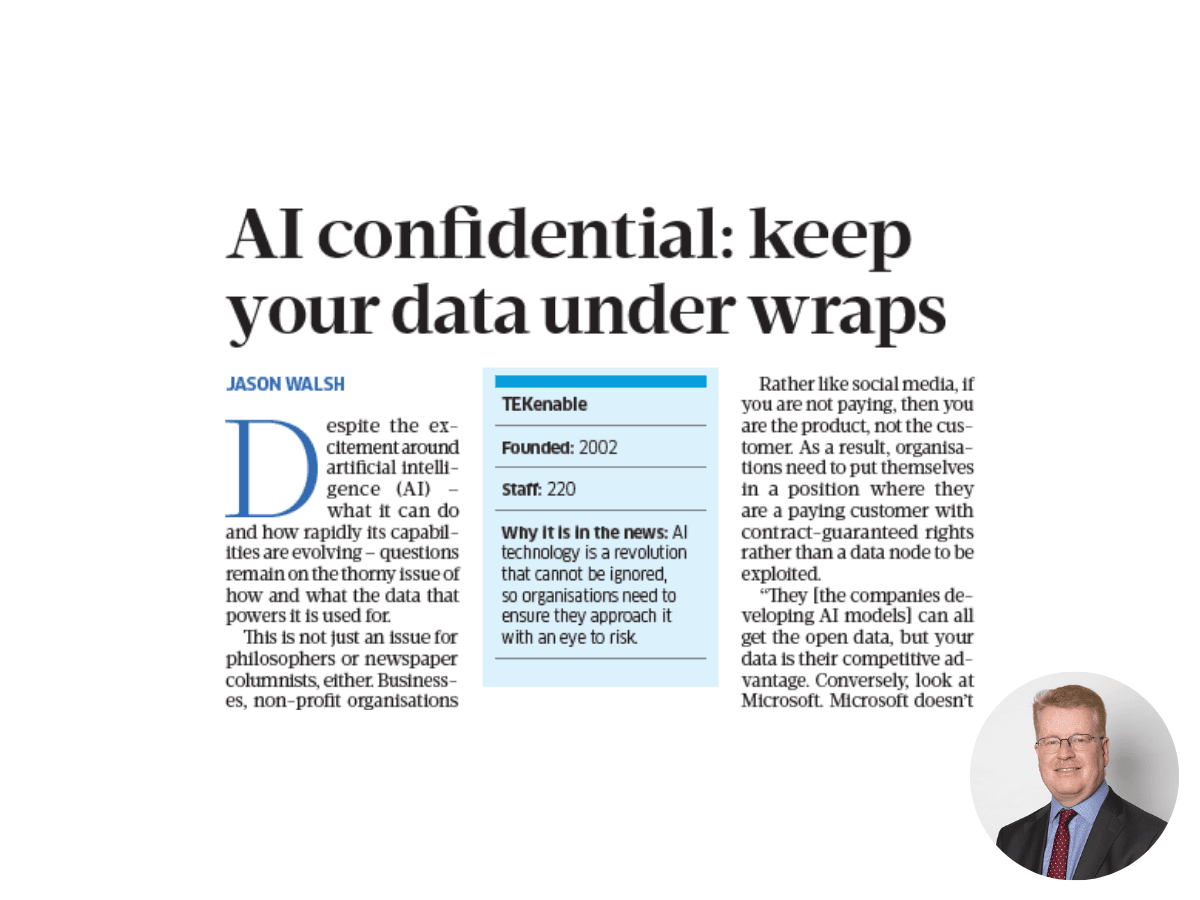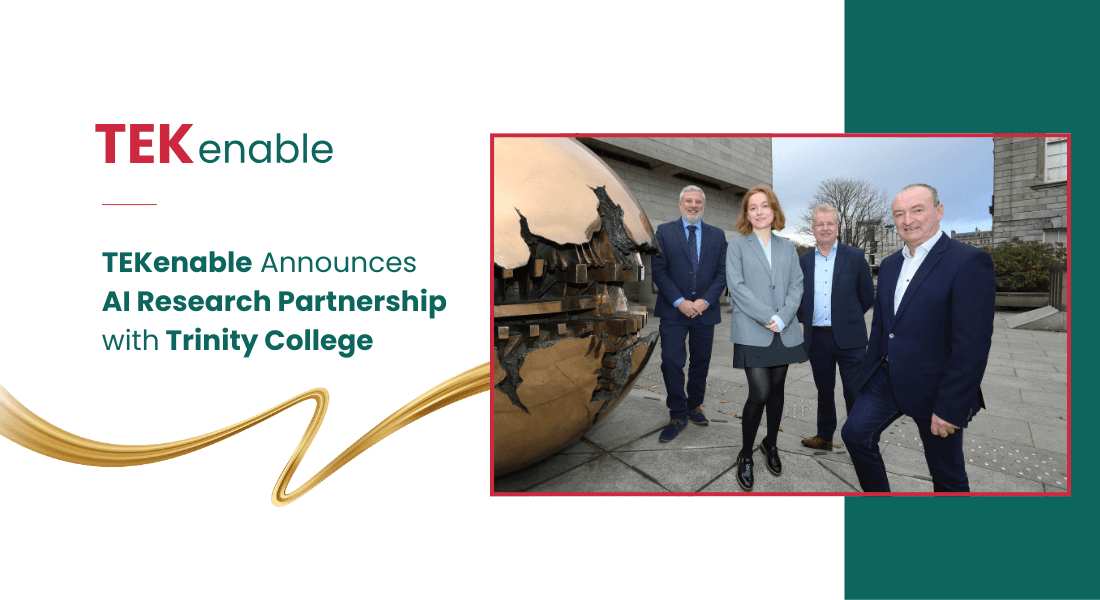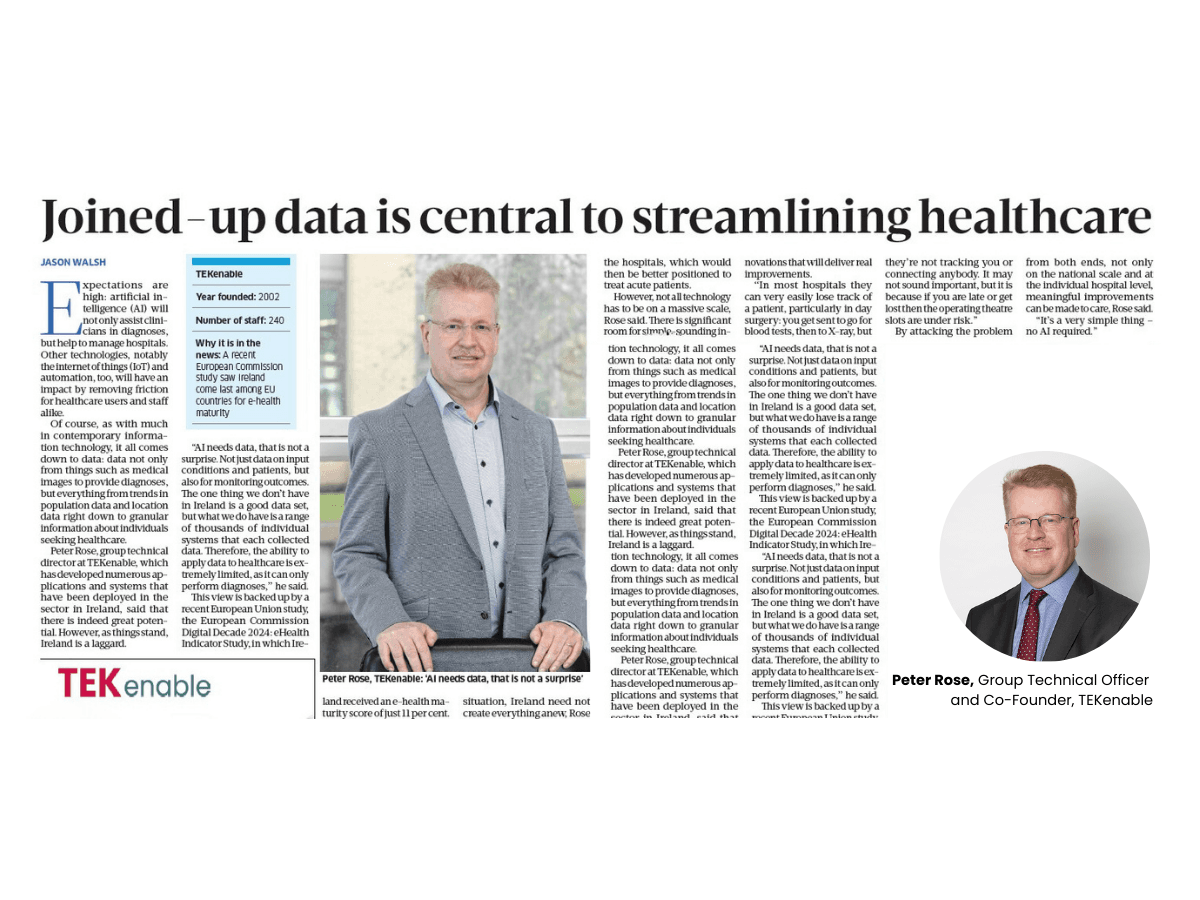The debate around privacy and AI have a tendency to overshadow a more immediate risk: the risk posed to confidential business information. However, a rational AI strategy can protect a business from missteps
Peter Rose, Group Technical Officer and Co-Founder, TEKenable
Despite the excitement around artificial intelligence (AI) – what it can do and how rapidly its capabilities are evolving – questions remain on the thorny issue of how and what the data that powers it is used for.
This is not just an issue for philosophers or newspaper columnists, either. Businesses, non-profit organisations and government and public sector bodies, all of which stand to make a range of productivity and other gains from AI, need to remain alert, in no small part because legislators are insisting they do so.
EU regulations, ranging from the General Data Protection Regulation (GDPR) to the Artificial Intelligence Act, have been written into law in order to ensure a level competitive playing field, and one that does not ride roughshod over EU citizens’ fundamental rights.
Clearly then data, while useful, is something of a minefield. However, when it comes to how it is used by AI, a distinction needs to be drawn between personally-identifying information (PII) and confidential business information.
Peter Rose, group technical officer and co-founder of consultancy and digital transformation specialists, TEKenable applies a Gordian knot solution to the problem of PII.
“Privacy comes in many different forms. The first one is personal info and, in my view, that has no business being sent to an AI,” he said.
“It is simply not necessary to send data that can be used to identify a person to an AI.”
Look at the business objectives of the AI provider and ask what they align to. Right now, their objective is to train the most powerful AI that has the most data
The same cannot be said of business data, however, and this is a crucial issue for organisations to not only get to grips with, but also get guarantees on. After all, if business data is withheld then the benefits of AI cannot be enjoyed, but if it is not withheld then businesses need proof that it remains confidential.
“This is about business confidentiality,” said Rose. “Here, you are concerned about protecting your intellectual property.”
The first step in doing this is to develop a strategic plan for AI adoption, and the first step of that is to think about who is providing AI services – and why.
“I would say, look at the business objectives of the AI provider and ask what they align to. Right now, their objective is to train the most powerful AI that has the most data.”
Considered this way, AI can instantly be seen to create grave risk for organisations that use it with wild abandon rather than following a careful plan.
Rather like social media, if you are not paying, then you are the product, not the customer. As a result, organisations, including IT companies need to put themselves in a position where they are a paying customer with contract-guaranteed rights rather than a data node to be exploited.
“They [the companies developing AI models] can all get the open data, but your data is their competitive advantage. Conversely, look at Microsoft. Microsoft doesn’t build its own model, it licenses one. It’s not in the business of training models; it is in the business of selling licences. There is [therefore] an alignment of interests,” Rose said.
Indeed, Microsoft has been very clear about this, stating that users of its AI in Azure are guaranteed that their inputs, outputs, embeddings and training data are not available to other customers. Nor are they made available to its AI model developer OpenAI, or used to improve or train either OpenAI models or the foundational models in Azure.
One of TEKenable’s own in-house developed AI products demonstrates this: Chat With Your Documents is a piece of software built by TEKenable in Azure that allows organisations to access information currently locked up in documents. Users ask a question of the app and it comes back with an answer based on what is contained in company files such as emails, sales charts and presentations.
“The information you give to Chat With Your Documents never leaves your Office 365 tenancy,” Rose said.
These kinds of guarantees are important, Rose said, because despite the hype around AI being rather overwhelming, it had already demonstrated that it was a crucial technology of the future, indeed, one that was very likely to revolutionise things in ways we cannot fully foresee.
Directly asked, then, if the current moment with AI was akin to the arrival of the commercial worldwide web, Rose said yes.
“Yes, this really is a ‘Netscape moment’.”
The above text was reproduced from the interview published in BusinessPost on October 11th, 2024.





